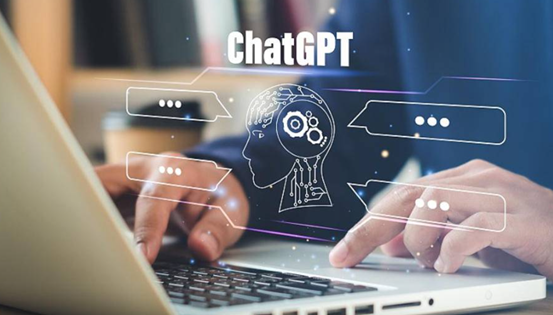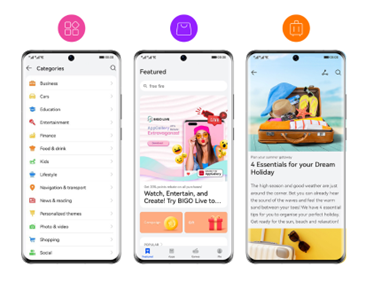ChatGPT isn’t just a buzzword—it’s a tool transforming how millions work, learn, and create in 2025. But is it right for everyone? This guide breaks down who gains the most from ChatGPT’s capabilities, from students tackling essays to marketers launching campaigns. We’ll explore real-world use cases, address common misconceptions, and highlight scenarios where other tools might be better. Whether you’re a tech novice or a seasoned pro, understanding ChatGPT’s strengths and limits ensures you use it effectively. By the end, you’ll know exactly how to leverage AI to save time, spark creativity, and achieve your goals—without falling into the trap of over-reliance. Let’s dive into who stands to benefit the most from this revolutionary tool.

Who Benefits Most from ChatGPT?
Students: From Essay Drafts to Exam Prep
Students use ChatGPT to brainstorm essay topics, outline arguments, and even draft sections. For example, a history student might ask, “Explain the causes of the French Revolution in three paragraphs,” then refine the output to match their voice. It’s also a study buddy for summarizing complex topics or generating practice quiz questions. However, students must avoid plagiarism—ChatGPT’s output should inspire original work, not replace it.
Professionals: Automating Work Tasks
Professionals across industries rely on ChatGPT to streamline workflows. A marketer might ask, “Write a 100-word LinkedIn post promoting our new product,” then tweak the tone to match their brand. Developers use it to debug code or explain technical concepts in simpler terms. Even project managers leverage AI to draft meeting agendas or summarize progress reports. The key is treating ChatGPT as a collaborative assistant, not a replacement for critical thinking. For instance, a lawyer might use it to draft initial contract clauses but will always review legal implications personally.
Can ChatGPT Enhance Creative Work?
Writers and Content Creators: Overcoming Blocks
Writers hit walls when staring at blank pages. ChatGPT helps by generating opening lines, dialogue snippets, or even full paragraphs. A novelist might ask, “Describe a dystopian city where technology controls emotions,” then expand on the AI’s vivid imagery. Bloggers use it to outline articles or rephrase jargon into conversational language. However, over-reliance on AI can dilute voice. The solution? Use ChatGPT for drafts, then rewrite sections to inject personality. For example, a travel writer might ask for descriptions of a Parisian café but add personal anecdotes about their own visit.
Artists and Designers: Sparking Visual Ideas
While ChatGPT doesn’t create visuals directly, it fuels creativity for artists and designers. A graphic designer might ask, “List 10 color palettes for a eco-friendly brand,” then use the suggestions as a starting point. Illustrators use it to brainstorm character traits or storylines for comics. Even musicians leverage AI: a 2024 collaboration saw songwriters using ChatGPT to generate lyrics about climate anxiety, which they then set to melodies. The key is treating AI as a muse—its suggestions spark ideas, but the final work remains distinctly human.
Is ChatGPT Right for Businesses?
Small Teams: Streamlining Customer Support
Small businesses often lack dedicated support teams. ChatGPT can act as a first-line chatbot, answering FAQs like, “What’s your return policy?” or “How do I track my order?” A 2024 survey found that 68% of businesses using AI chatbots reduced support costs by 30%. However, human oversight is crucial. For example, if a customer asks, “My product arrived damaged,” the chatbot should escalate the issue to a staff member.
Marketers: Crafting Engaging Campaigns
Marketers use ChatGPT to generate ad copy, social media captions, and email subject lines. A retail brand might ask, “Write a humorous tweet promoting our summer sale,” then refine the output to align with their brand voice. AI also helps with A/B testing—generating multiple versions of a headline to see which performs best. But creativity still matters: a 2025 study by AdWeek showed that campaigns blending AI-generated content with human insights had 40% higher engagement than those relying solely on AI.
Something to Consider
Tips for downloading ChatGPT on Smartphone
First and foremost, we must determine whether ChatGPT can be downloaded on our electronic devices. Second, does ChatGPT work on huawei? For instance, gadgets sold under the Huawei name. It might be important to follow the instructions for installing ChatGPT on Huawei devices. That's quite easy! Using the Quick APP, you can quickly download ChatGPT from AppGallery and save it to your home screen for easy access at any time. For an alternative method, you can add the number +18002428478 to your contacts list on WhatsApp and start a conversation with ChatGPT.

Conclusion
ChatGPT is a versatile tool, but its value depends on how you use it. Students, professionals, creatives, and businesses all benefit when they treat AI as a collaborator—not a crutch. By leveraging its strengths in idea generation, language refinement, and task automation, users can save time and unlock new creative heights. However, those in high-stakes fields or seeking perfection should approach with caution. In 2025, the most successful ChatGPT users will be those who combine AI efficiency with human insight, ensuring their work remains original, accurate, and impactful.
